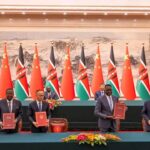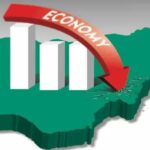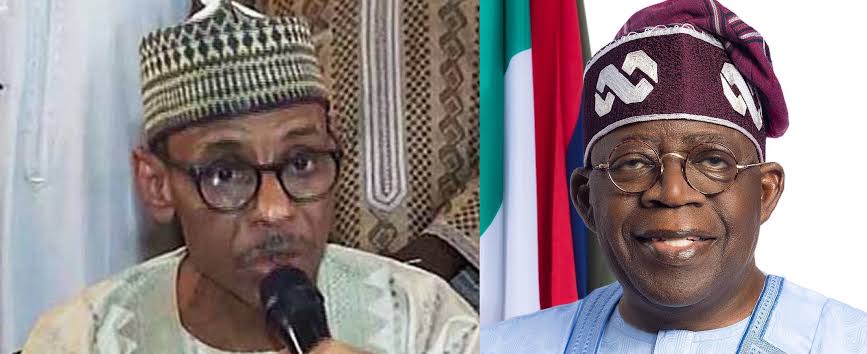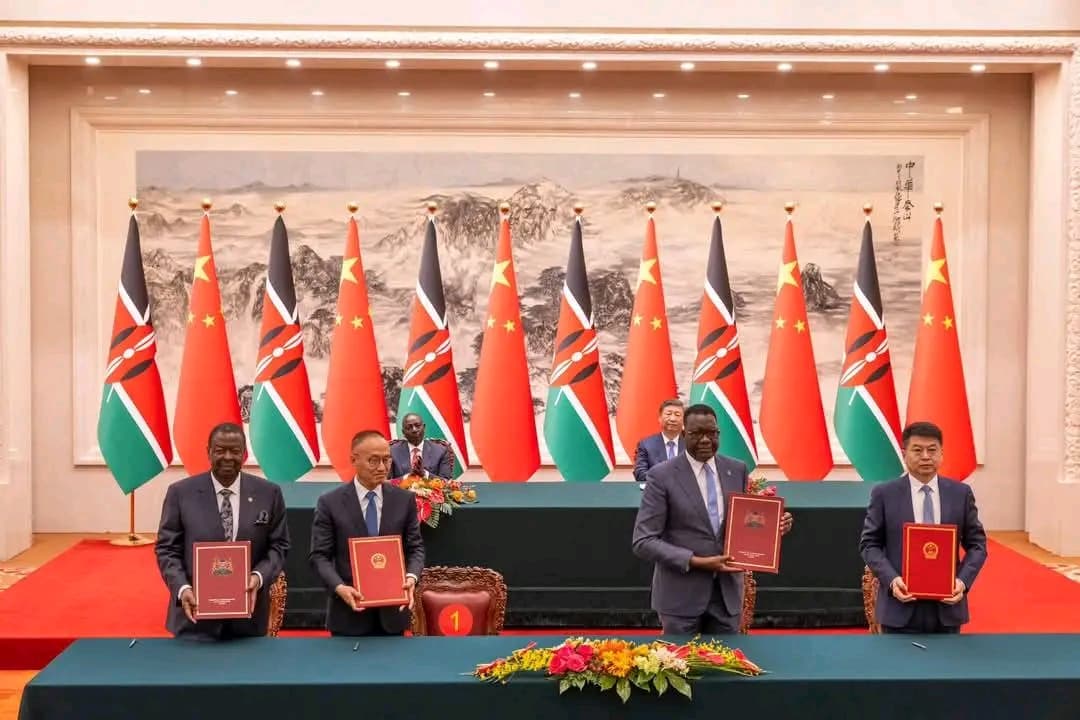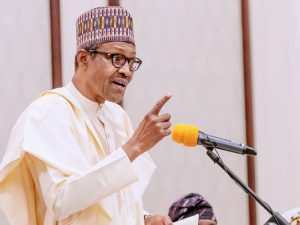 The coronavirus pandemic and oil market crash will together probably change the global energy industry for ever. Nigeria, Africa’s largest oil producer, should urgently and aggressively diversify its economy away from a dependence on petroleum exports.
The coronavirus pandemic and oil market crash will together probably change the global energy industry for ever. Nigeria, Africa’s largest oil producer, should urgently and aggressively diversify its economy away from a dependence on petroleum exports.
The future is bleak and the flurry of headlines about the pandemic continue to assert a new reality in which global energy consumption will remain depressed for the foreseeable future. However, if the finalized plans of the revised federal budget released last week are any indicator of the Nigerian government’s priorities, it appears there is little appetite for the transformations needed to strengthen the country’s economic foundations.
The government cut the crude benchmark by more than 50 percent, but spending levels remained relatively unchanged, even though petroleum revenues will plummet by 80 percent. What that means is that the inevitable $13.8 billion deficit will have to be financed by asset sales, domestic borrowing and loans from the IMF, World Bank and the Africa Export-Import Bank — effectively kicking the can and pains of reform down the road while saddling future generations with debt. For the second time in four years, Nigeria finds itself in a quandary of dwindling revenues and creeping recession.
Strangely, there is some room for large deficits and increased borrowing because of the $6.7 billion set aside to service debt. However, the IMF is already warning that continued borrowing will result in interest payments consuming about 96 percent of government revenues (up from 58 percent last year) and public debt will rise to more than a third of GDP in two years. There is also concern that the federal government is setting ambitious revenue targets that it has never met. When oil prices hit $61 per barrel last year, the government managed to collect only 58 percent of targeted revenues, mostly from the petroleum sector.
Now, however, the global energy industry is under intense pressure because of dwindling demand from slowed economic activity, and a supply glut from over-production has sent prices plummeting to historic lows. It is moments such as these when other oil producers rely on the resilience of non-oil sectors to stave off economic collapse while the global energy industry slowly recovers — starting with clearing the glut of stored crude; in other words, hoping for an abrupt jump in prices after the worst of the pandemic is over is merely wishful thinking. It will be a long painful road for oil prices to return to pre-pandemic levels. Nigeria’s non-oil revenues are, unfortunately, among the lowest in the world, and even they will not be spared the economic slowdown due to restrictions aimed at curbing the spread of the coronavirus.
So, what options does the Nigerian government have to address these issues? Many,surprisingly.
First, its economy is not dominated by the oil industry, as many seem to believe. Services, manufacturing and agriculture contribute more to GDP, while oil accounts for about 7 percent of that. However, 95 percent of forex earnings and more than half of government revenues are derived from petroleum exports, and therein lies the problem. A global downturn or oil prices plummeting, as they already have, results in an increase in borrowing to maintain spending levels (40 percent of this year’s budget was earmarked for recurrent spending, including covering for a bloated civil service) since non-oil revenues from taxes and fees paid to government agencies or entities are simply inadequate. In addition, since the effects of the pandemic are worldwide, the second-largest source of forex — remittances — will also plunge this year, so there is little sense in expecting sustained inflows.
There is an argument for deploying innovative ways to widen the tax base, which could boost revenues, while shrinking the civil service to trim excess costs, waste and duplication. However, nearly two thirds of Nigeria’s economy consists of an untaxed, unregulated informal sector. Combined with the pandemic’s negative impact on economic activity, widening the tax base on its own will probably falter. It will have to be combined with other major reforms for there to be any meaningful, long-term impact on the economy’s resilience for the dark days that lie ahead, post-pandemic and a sustained downward decrease in demand for oil in an increasingly climate-conscious world.
Second, Nigeria must devalue its currency by allowing it to float freely from its current pegged value of N360 to the US dollar to a fairer value of slightly more than N400. Liberalizing the forex policy would translate to more naira for every dollar in petroleum sales and stop the central bank from artificially buffering the currency when it is much more beneficial to let the market set the price — and intervening only when there are large fluctuations. It also deals with a messy system of managing or tracking multiple exchange rates versus the dollar depending on who was buying forex as part of a wider government reform effort aimed at trimming waste.
Third, Nigeria’s agricultural sector remains under exploited. At one point, Nigeria was the world’s largest producer of palm oil, with more than 40 percent of global market share, but over the past decade it has spent over $3 billion importing this commodity. Short-sighted protectionist policies have not resulted in a boost to domestic rice farming, as illegal imports continue to pour in. Additionally, poor infrastructure, electrification and inadequate storage facilities mean nearly half of the tomatoes grown in Nigeria go to waste. The government’s answers to these concerns, such as fertilizer initiatives and loan schemes, have been lackluster at best because they fail to address the fundamental issues faced by the agricultural sector.
Fourth, the issues plaguing agriculture sector also undermine another potential solution to Nigeria’s dependence on oil revenues — boosting local manufacturing and encouraging greater domestic consumption. The rapidly growing youth demographic means there is an eager and willing labor force should Nigeria adopt formal plans to move from an extractive economy in favor of a manufacturing and services mix.
The benefits of such a transformation are too numerous to list here but, importantly, it will accelerate shrinking of the informal and public sectors in favor of an equally sized or larger private, taxable, regulated formal sector. In turn, it boosts non-oil revenues, and floating the naira will encourage forex inflows as investors flood in seeking new opportunities beyond Asia and Latin America.
In fact, labor costs are already rising in those parts of the world, prompting many to seek new destinations to expand, relocate and invest substantially. Nigeria is among the best options, with its population of 200 million and largely untapped labor force. However, poor transport and electricity supply, and the lack of technology transfers, could dissuade investment and deny the country opportunities at rapidly expanding its manufacturing base. In addition, extreme poverty continues to hamper domestic consumption — a key contributor to economic growth. Thus, any reforms will have to factor in Nigeria’s poor whose consumption is limited only to basic commodities, meaning there is no sustained demand for other types of consumer goods.
Ultimately, conventional wisdom says the Nigerian government will shy away from the scale and complexity of, and intense resistance to, such reforms. What is familiar to officials and policymakers in Abuja is doing just enough to stay afloat whichever way the see-saw of global energy prices may go. However, the onslaught of low oil prices, a worldwide economic slow-down and depleted additional dollar savings (from a hefty $20 billion in 2008 to $71 million this year) is the long-awaited wake-up call for Nigeria to shake things up and start the slow, painful process towards divorcing itself from decades of oil dependence before it is too late.
Unfortunately, if the recent budget is anything to go by, the current administration appears content with simply staying afloat until 2023 by borrowing more and hoping that at some point, oil prices will climb back up once the worst of the pandemic is over.
Al Gwehl writes for the Arab News


